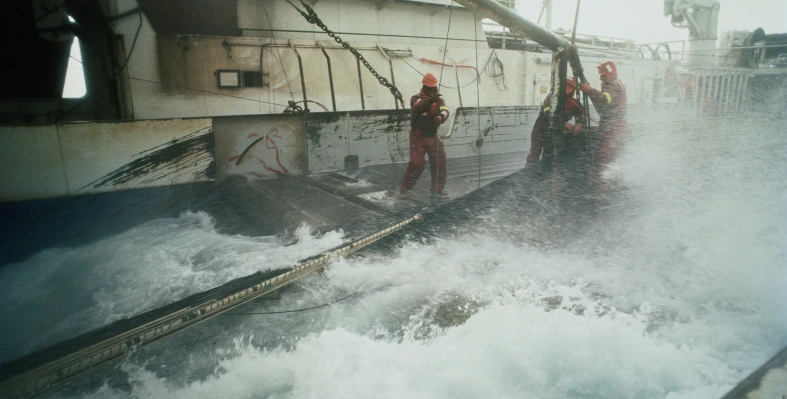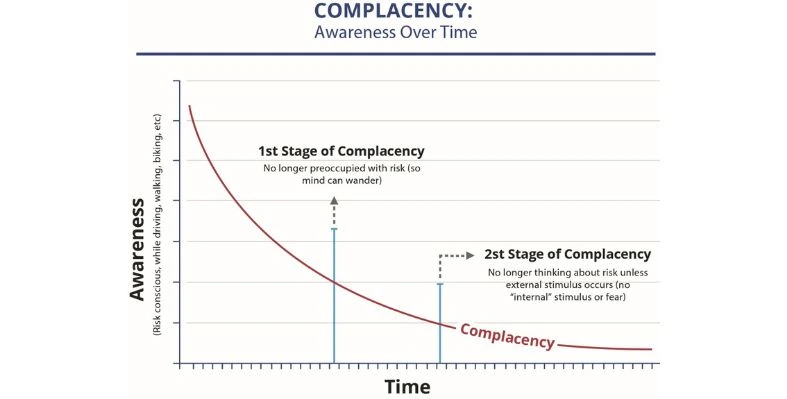Ocean workers, exposed to the escalating dangers of climate change, should be acknowledged as a frontline group in global efforts to mitigate its impacts, according to a new report by Lloyd’s Register Foundation.
The charity’s World Risk Poll Focus On: Risk Perceptions and Experiences of Ocean Workers reveals that these workers are among the most vulnerable to climate-related hazards, with 80% expressing concern about serious harm from severe weather.
The report draws on data from the 2024 World Risk Poll, conducted by Gallup, which surveyed 147,000 people across 142 countries.
It found that ocean workers are nearly three times more likely to identify climate change as the greatest risk to their daily safety (17%) compared to workers in other industries (6%).
The data underscores the unique challenges faced by those working at sea, where storms and unpredictable ocean conditions are intensifying.
According to the report, one in three ocean workers (33%) has experienced serious harm from severe weather in the past two years, compared to 20% of workers in other sectors.
The findings also highlight broader vulnerabilities.
Lack of training
Ocean workers reported the highest rates of workplace harm across all sectors, with 25% experiencing harm from their work in the past two years, compared to 18% of other workers.
Alarmingly, occupational safety and health (OSH) training is severely lacking, with 68% of ocean workers reporting they have never received such training, and only 25% having accessed it in the last two years.
Lloyd’s Register Foundation is urging governments, employers, and policymakers to recognise ocean workers as frontline workers in the context of climate change.
The charity calls for urgent action to improve safety training and protections to address the disproportionate risks faced by this group.
Nancy Hey, director of evidence and insight at Lloyd’s Register Foundation, said, “It is imperative that we prioritise OSH training for ocean workers and change the assumption that this must only be done once. Training is a continuous process, not a one-off event, which requires adequate funding and widespread industry support.
“Stronger safety standards must be tailored to the unique challenges of working on, or near, the water, including protections against severe weather and isolation-related stress. Without them, ocean workers, who play such a pivotal role in our global economy, will be at increasingly heightened risk as our climate continues to change.”
“However, their frontline status means ocean workers will also have knowledge and expertise on how we can safely adapt to climate change, and this is learning we should look to draw on in other sectors as they are also put under increasing climate-related stress.”
Professor Maximo Q. Mejia, Jr., president of the World Maritime University, said, “Seafaring and commercial fishing have traditionally been recognised as the world’s most hazardous occupations. Aside from already challenging conditions that have perennially been associated with shipboard life, our ocean workers face new and even more serious risks brought about by climate change. The World Risk Poll provides us with important and updated data and evidence that should inform any policy designed to protect not only our ocean workers, but the planet itself.”
Chirag Bahri, international operations manager at the International Seafarers Welfare and Assistance Network (ISWAN), and a former seafarer, commented, “In addition to the harsh weather, ocean workers have to deal with a variety of internal issues which lead to anxiety and stress, such as loneliness, working with a diverse and international crew, and being physically separated from their loved ones. This study emphasises that ocean workers are also subject to quiet storms in the form of insufficient training and fear of job loss. Their wellbeing is just as important as the work they do, so they should receive better training that helps to promote their occupational health and safety. The global economy depends on their resilience and power, and in order to safeguard the environment and humanity, we must adopt sustainable solutions.”


























